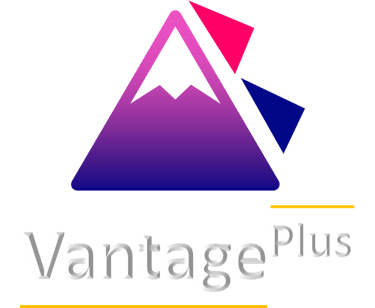
SEO Through the Ages: How Search Engine Optimization Has Evolved
Dive into the transformative journey of SEO with our comprehensive guide. Explore the pivotal shifts from the dawn of search engines to the future of AI and voice search. Uncover the impact of Google algorithm updates and learn how to stay ahead in the evolving landscape of search engine optimization. Perfect for marketers and businesses aiming to leverage the latest SEO trends.
SEO
Bashaar Ahmed
2/28/202414 min read
The Dawn of SEO: Late 1990s
In the realm of digital marketing, the late 1990s marked the dawn of a revolutionary era known as the SEO Evolution Timeline. Websites were beginning to populate the vast expanse of the internet, and businesses quickly realized the need to stand out amongst the growing competition. Search engines, albeit in their infancy, played a crucial role in shaping the way content was discovered online. This period saw the birth of search engines like Yahoo!, AltaVista, and Ask Jeeves, which paved the way for the optimization of content through strategic keywords and meta tags.
As businesses sought to improve their visibility on these emerging search engines, keyword stuffing and the utilization of meta tags became prevalent strategies in the SEO Evolution Timeline. Website creators flooded their content with an abundance of keywords in an attempt to manipulate search engine algorithms and rank higher in search results. Additionally, the strategic placement of meta tags within the HTML code of web pages allowed for greater control over how search engines interpreted and displayed website content. These rudimentary tactics laid the foundation for the evolution of SEO practices that would continue to advance in the years to come.
Birth of Search Engines
Search engines play a pivotal role in shaping the digital landscape we navigate today. The birth of search engines can be traced back to the early days of the internet when the need for organizing and accessing information efficiently became apparent. The emergence of pioneers like Archie, Excite, and Lycos laid the groundwork for what would eventually evolve into the sophisticated search engines we rely on daily. These early search engines paved the way for the revolutionary advancements that followed, leading to the inception of Google in 1998.
The evolution of search engines took a significant leap with the introduction of Google Algorithm Updates History. Google's algorithm updates have been instrumental in refining search results, enhancing user experience, and combating black hat SEO tactics. The history of Google Algorithm Updates is a chronicle of continuous innovation aimed at delivering more relevant and accurate search results to users worldwide. From the infamous Florida update in 2003 to the more recent BERT update in 2019, Google's commitment to improving search quality has shaped the way websites are optimized and ranked on the internet.
Keyword Stuffing and Meta Tags
In the ever-evolving landscape of SEO, the practice of keyword stuffing and meta tags played a significant role in shaping the way websites were optimized for search engines. In the late 1990s and early 2000s, webmasters crammed as many keywords as possible into their content in an attempt to manipulate search engine rankings. Meta tags, specifically meta keywords and meta descriptions, provided a way for website owners to input relevant keywords and descriptions into their HTML code, influencing how their site appeared in search results.
Looking towards the future of SEO trends, it is evident that keyword stuffing and solely relying on meta tags are no longer effective strategies in achieving high rankings. Search engine algorithms have become more sophisticated, placing a greater emphasis on high-quality, relevant content that provides value to users. As the industry continues to evolve, website owners must shift their focus towards creating valuable, engaging content that naturally incorporates relevant keywords. By understanding the changing landscape of SEO and adapting to these trends, businesses can remain competitive in the online marketplace.
The 2000s: Google Takes the Lead
In the early 2000s, Google emerged as the dominant player in the search engine landscape, revolutionizing the way websites were ranked and discovered online. With its sophisticated algorithms and commitment to delivering relevant search results, Google quickly established itself as the go-to platform for users seeking information. As Google solidified its position as the top search engine, website owners and digital marketers began to pay closer attention to optimizing their online presence for better visibility. This marked the beginning of a new era in digital marketing, where Mobile SEO Strategies became increasingly important for reaching consumers on the go.
As the use of mobile devices surged in the mid-2000s, Google recognized the need to prioritize Mobile SEO Strategies in order to cater to the growing number of users accessing the internet on smartphones and tablets. Websites that were mobile-friendly and responsive gained a competitive edge in Google's search rankings, as the search engine started favoring sites that offered a seamless user experience across different devices. This shift towards mobile optimization pushed businesses to rethink their digital strategies and invest in responsive design, faster loading times, and overall mobile usability to stay ahead in the evolving digital landscape.


The Google Algorithm Updates Begin
As digital marketing strategies evolved in the late 1990s, the emergence of search engines revolutionized the online landscape. During this era, the foundation of SEO practices was laid down, establishing the importance of optimizing websites to enhance their visibility in search engine results. However, this period also saw the unethical practices of keyword stuffing and overreliance on meta tags to manipulate search rankings. As businesses delved into the realm of online marketing, the need for effective SEO became increasingly evident.
The inception of Google in the early 2000s marked a significant shift in the digital marketing arena. With Google's ascent to the forefront of search engines, a new era of SEO began. The initiation of Google algorithm updates signified a pivotal moment in search engine optimization, where websites had to adhere to constantly evolving ranking criteria. Concurrently, the practice of link building gained prominence as a crucial factor in determining a website's credibility and authority in the digital realm. The era of the 2000s set the stage for a more sophisticated approach to SEO, heralding a future where strategic optimization would be paramount to success in the online sphere.
Rise of Link Building
Link building emerged as a pivotal strategy in the late 2000s, marking a shift in the SEO landscape toward off-page optimization. Backlinks became a crucial ranking factor as search engines like Google placed greater emphasis on authoritative and relevant external links pointing to a website. Professional SEO practitioners recognized the significance of acquiring quality backlinks from reputable sources to enhance a site's credibility and visibility in search engine results. This practice of link building not only boosted a website's search engine rankings but also contributed to establishing trust and domain authority.
During this era, websites sought to improve their online presence by reaching out to industry influencers, directories, and other websites to obtain backlinks. The process involved creating compelling content that naturally attracted inbound links from reputable websites within the same niche. As link building evolved, strategies such as guest posting, broken link building, and social bookmarking gained prominence in the SEO community. The emphasis on acquiring high-quality backlinks underscored the importance of building relationships with relevant websites to drive organic traffic and enhance the overall online reputation of a domain.
The 2010s: Content is King
In the realm of online marketing during the 2010s, the mantra "Content is King" rang loud and true. As search engines like Google honed in on delivering high-quality and relevant content to users, businesses scrambled to revamp their digital strategies. The era marked a shift from keyword-stuffed articles to informative, engaging, and valuable content that resonated with audiences. This shift required a paradigm change in how businesses approached their online presence. Websites that once relied solely on technical SEO tactics now needed to focus on creating compelling content that not only attracted visitors but also kept them coming back for more.
The landscape of digital marketing in the 2010s demanded a new approach, one that prioritized user engagement and satisfaction above all else. Google's algorithm updates, such as the introduction of Panda and Penguin, penalized websites that engaged in black-hat SEO practices like keyword stuffing and low-quality link building. This development forced businesses to pivot towards content marketing strategies that emphasized creating content that answered users' queries, provided solutions to their problems, and offered genuine value. As the digital sphere evolved, so did the understanding that in order to succeed in the competitive online market, quality content was not just an option but a necessity.
The Panda and Penguin Updates
Google's Panda and Penguin updates marked a significant shift in the way search engine rankings were determined. Launched in 2011 and 2012, respectively, these updates aimed to penalize websites employing questionable tactics to manipulate search results. Panda targeted sites with thin or low-quality content, while Penguin focused on those engaging in spammy link-building practices. The introduction of these algorithms emphasized the importance of quality and relevance in content and backlink profiles. Websites that failed to meet these standards faced drastic drops in their search rankings, highlighting Google's commitment to providing users with the most relevant and valuable search results.
The Panda and Penguin updates forced website owners and SEO professionals to reevaluate their strategies and prioritize creating high-quality, user-focused content. This shift marked a turning point in the SEO industry, pushing for more ethical and sustainable optimization practices. As a result, the emphasis moved from keyword stuffing and manipulative link-building schemes to providing valuable information and a seamless user experience. Adapting to these changes became crucial for maintaining and improving search visibility, shaping the future of SEO toward user-centric optimization strategies.
The Rise of Content Marketing
In the digital landscape of the late 2010s, the paradigm shift towards content marketing became palpable. Brands sought to engage with their audiences in a more meaningful way, steering away from overt advertising towards providing valuable, informative content. This strategic approach was rooted in the understanding that consumers were becoming more discerning and sought authenticity and relevance in brand interactions. Thus, the rise of content marketing as a cornerstone of online success was inevitable.
Content marketing became the linchpin in brand storytelling and establishing thought leadership in various industries. By crafting compelling narratives, useful guides, and informative blog posts, companies could not only attract a wider audience but also build trust and credibility. The focus shifted from bombarding users with sales pitches to creating content that resonated with their needs and aspirations, thereby fostering long-term relationships. This shift not only improved brand perception but also had a tangible impact on SEO, as search engines began prioritizing high-quality, relevant content in their rankings.
The Late 2010s: User Experience Takes Center Stage
In the late 2010s, the digital landscape witnessed a significant shift towards prioritizing user experience in website design and optimization. This marked a crucial turning point where search engines increasingly valued websites that focused on providing seamless and valuable experiences for users. As technology advanced, search engines became more sophisticated in analyzing user behavior and interactions with websites, emphasizing the importance of factors such as mobile responsiveness, page speed, and overall usability. Websites that prioritized user experience found themselves ranking higher in search results, establishing a new era where user-centric design became paramount for online success.
As user experience took center stage, website owners and digital marketers began to realize the pivotal role it played in not only attracting visitors but also retaining them. Factors like mobile-first indexing, which prioritized mobile-friendly websites in search results, and the emphasis on page speed as a ranking factor, reshaped the way websites were designed and optimized. The late 2010s saw a shift towards a more holistic approach to SEO, where enhancing user experience became intertwined with content quality, technical optimization, and overall website performance. Incorporating strategic elements such as intuitive navigation, engaging visuals, and personalized content became instrumental in creating a compelling user journey that resonated with both visitors and search engine algorithms.


Mobile-First Indexing
With the increasing dominance of mobile devices as the primary means of online browsing, search engines like Google have shifted their focus towards mobile-first indexing. This means that Google predominantly uses the mobile version of a website's content for indexing and ranking. Websites that are not optimized for mobile devices may experience a decline in their search engine rankings. Therefore, it is crucial for websites to ensure that their mobile version offers the same high-quality content and user experience as their desktop version. Mobile-first indexing has become a key consideration for website owners and marketers looking to maintain or improve their search engine visibility.
Implementing mobile-first indexing involves ensuring that a website's mobile version is responsive, user-friendly, and provides the same valuable content as the desktop version. By optimizing for mobile-first indexing, website owners can improve their chances of ranking well in search engine results pages and reaching a wider audience. Google's emphasis on mobile-first indexing underscores the importance of adapting to the evolving landscape of online search and user behavior. Furthermore, with the majority of internet users accessing content from mobile devices, prioritizing mobile optimization has become a strategic necessity for businesses and organizations aiming to enhance their online presence and visibility.
Page Speed and User Experience
In the digital age, user experience has become a paramount factor in the success of any website. Page speed plays a pivotal role in shaping user experience, as users demand fast-loading websites. Studies have shown that a one-second delay in page load time can result in a considerable drop in user engagement and ultimately lead to higher bounce rates. Professional web developers and digital marketers emphasize the importance of optimizing page speed to enhance user experience and retain visitors on the site.
Several tools are available to help website owners analyze and improve their page speed, such as Google's PageSpeed Insights and GTmetrix. By utilizing these tools, webmasters can identify performance bottlenecks and take necessary actions to enhance loading times. Furthermore, optimizing images, minifying CSS and JavaScript files, leveraging browser caching, and utilizing content delivery networks (CDNs) are common strategies employed to boost page speed. Prioritizing page speed not only improves user experience but also positively impacts search engine ranking, as search engines like Google consider page speed as a ranking factor in their algorithms. Embracing a user-centric approach by prioritizing page speed optimization is essential for maintaining a competitive online presence.
The 2020s: The Age of AI and Voice Search
The 2020s mark the era of Artificial Intelligence (AI) and Voice Search in the realm of Search Engine Optimization (SEO). The introduction of AI in search algorithms has revolutionized the way websites are ranked, shifting the focus towards user intent and behavior. Through machine learning and natural language processing, search engines like Google are now better equipped to understand the context behind search queries, providing users with more relevant and personalized results. Voice Search, powered by technologies like Amazon Alexa and Google Assistant, has also gained traction, impacting the way users interact with search engines.
In this digital landscape, AI and Voice Search have reshaped the SEO strategies employed by businesses and digital marketers. Optimizing content for voice search requires a different approach compared to traditional text-based searches. Long-tail keywords and conversational phrases play a pivotal role in capturing the attention of voice-activated devices. Understanding user intent and providing concise, informative answers are key to ranking well in voice search results. As AI continues to evolve, incorporating machine learning algorithms into SEO practices will be essential in staying ahead of the curve and meeting the ever-changing needs of users in the dynamic online environment.


Introduction of AI in Search
The introduction of Artificial Intelligence (AI) in search engines marks a significant milestone in the realm of digital marketing. AI technologies have revolutionized the way search engines conceptualize and deliver search results to users. By employing machine learning algorithms, search engines can now better understand user queries, intent, and context to provide more relevant and personalized search results.
One key application of AI in search is natural language processing (NLP), which enables search engines to interpret human language more effectively. As a result, search engines can now comprehend complex queries, semantics, and user intent with greater accuracy. This advancement has led to more precise search results that cater to users' specific needs, enhancing the search experience. AI-powered search engines also leverage data analytics and predictive modeling to anticipate user behavior and deliver personalized search results, elevating the overall user experience on the internet.
AI technologies have revolutionized the way search engines deliver results
Machine learning algorithms help understand user queries, intent, and context better
Natural language processing (NLP) allows search engines to interpret human language effectively
More precise search results cater to users' specific needs
Data analytics and predictive modeling anticipate user behavior for personalized results
Navigating the Future of SEO Together
As we've journeyed through the history of SEO, from its humble beginnings to the sophisticated, AI-driven strategies of today, it's clear that the only constant in SEO is change. The evolution from keyword stuffing to the nuanced understanding of user intent, from the desktop dominance to mobile-first indexing, and now to the dawn of voice search and AI, illustrates the dynamic landscape of digital marketing. The future of SEO promises even more advancements, with predictive analytics, further AI enhancements, and possibly new search technologies shaping how we optimize for search engines.
Embracing these changes requires not just awareness but a proactive approach to integrating new SEO strategies. It's about understanding the past to predict future trends, ensuring your digital presence not only survives but thrives in the ever-evolving search landscape.
Secure Your Digital Future with Expert SEO Strategy
Ready to navigate the future of SEO with confidence? At [Your Company], we're not just observers of change; we're pioneers, constantly adapting and innovating to ensure our clients stay ahead of the curve. Whether you're looking to refine your current SEO strategy or explore new territories in digital marketing, our team of experts is here to guide you through every step.
Don't let your business fall behind in the digital age. Schedule a meeting with us today to explore how we can elevate your SEO strategy, adapt to the latest trends, and secure your place at the forefront of your industry. Together, we'll turn challenges into opportunities and ensure that your business not only keeps up with the pace of change but sets the pace.
Book a Meeting with Our SEO Experts
Elevate Your SEO Game with Vantage Plus Marketing. Let's shape the future of your digital presence together.



FAQ Section: SEO Trends and Strategies
What is SEO and why is it important in 2024?
SEO, or Search Engine Optimization, is the practice of increasing the quantity and quality of traffic to your website through organic search engine results. In 2024, with the digital landscape more competitive than ever, SEO is crucial for improving visibility, reaching target audiences, and enhancing user experience.
How does AI impact SEO strategies today?
Artificial Intelligence (AI) significantly impacts SEO by enabling more personalized search experiences and more sophisticated understanding of user intent. AI technologies, like machine learning, help search engines provide more relevant results, making it essential for SEO strategies to adapt by focusing on quality content and user engagement.
What are the most important Google algorithm updates I should be aware of?
Recent important updates include the BERT (Bidirectional Encoder Representations from Transformers) and Core Updates, which focus on understanding natural language and providing high-quality, relevant content to search queries. Staying informed about these updates is crucial for optimizing your SEO strategy.
How can I optimize my website for voice search?
To optimize for voice search, focus on natural language keywords, question-based queries, and local SEO. Ensure your website loads quickly, is mobile-friendly, and provides clear, concise answers to common questions related to your industry.
What role does video content play in SEO?
Video content significantly enhances SEO by improving engagement, reducing bounce rates, and providing diverse content that search engines favor. Optimizing video titles, descriptions, and transcripts with keywords can improve visibility and attract more traffic.
Is mobile optimization still crucial for SEO?
Yes, mobile optimization is more crucial than ever. With the majority of searches conducted on mobile devices, a mobile-friendly website is essential for ranking well in search engine results and providing a positive user experience.
How do I measure the success of my SEO efforts?
Measure SEO success by tracking key metrics such as organic traffic, search engine rankings, conversion rates, bounce rates, and time on site. Tools like Google Analytics and Google Search Console can provide valuable insights into your SEO performance.
Can social media impact my website's SEO?
While social media signals don't directly influence search engine rankings, a strong social media presence can drive traffic to your website and increase brand awareness, indirectly benefiting your SEO efforts.
What are "E-A-T" and its importance in SEO?
E-A-T stands for Expertise, Authoritativeness, and Trustworthiness. It's a framework used by Google to assess content quality and reliability. High E-A-T content is crucial for ranking well, especially in industries where accurate information is critical, such as health and finance.
What's the future of SEO?
The future of SEO will likely focus more on user experience, including faster loading times, mobile optimization, and high-quality, engaging content. AI and voice search will also play larger roles, making it important for businesses to stay agile and adapt to new technologies.
